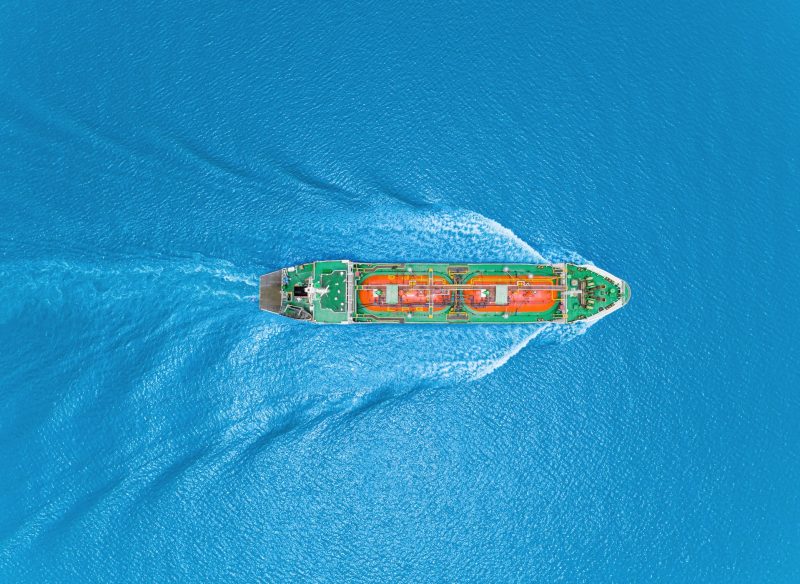Last Updated on: 17th January 2025, 04:10 pm
Mohammed Asibelua, Equinox Group Ltd executive chairman, leads a group of companies that is energising Sub-Sahara Africa. A wholly owned Nigerian independent investment company, Equinox Group Ltd has interests in a wide range of industrial sectors. Designed to develop and invest in opportunities across Nigeria and wider West Africa, Equinox Group Ltd’s innovative business strategy draws on the group’s considerable experience, knowledge, relationships and capital strength.
This article will look at maritime financing, exploring different avenues that could pose the potential to help drive growth in the Nigerian maritime industry.
In March 2024, Abdussamad Dasuki, the Nigerian chairman of the House Committee on Shipping Services, paid a visit to the Nigerian Shippers’ Council. In his address, Mr Dasuki explained that the House of Representatives was working to facilitate the establishment of a Nigerian maritime bank. Such a financial institution could doubtlessly go a long way towards driving growth in the country’s maritime and financial sectors, ultimately providing a significant boost to the Nigerian economy overall.
In essence, a maritime bank is a specialised financial institution that provides tailored financial products and services for businesses operating in the maritime sector. Such an institution focuses on addressing the unique financial needs pertaining to the shipping sector, including ports, shipbuilding and logistics, as well as providing specialist services in the maritime industry’s broader value chain.
A maritime bank could play a crucial role in achieving sustainability in Nigeria’s maritime industry, paving the way for the development of innovative solutions addressing emerging challenges and opportunities. Examples include development and investment in green technologies, alternative fuels, fuel-efficient engines, and digital solutions designed to improve navigation and operational efficacy.
In addition to standalone maritime banks, there are also other potential avenues to explore in terms of increasing access to specialised maritime financing. Globally, standalone maritime banks are something of a rarity, with development finance institutions and private sector banks with strong maritime links typically relied upon to finance the maritime sector. While the focus of development finance institutions is to deliver on trade-related government economy goals, private sector banks are largely driven by profitmaking and corporate strategy.
China has several large private-sector banks with a strong ties to the maritime sector, including ICBC Leasing and China Exim Bank, with the latter institution boasting more than $850 billion in assets under management and ranking in first place in Lloyd’s List’s Top 10 Financial Institutions in Shipping. Providing substantial financing and leasing options for maritime projects, shipbuilding and leasing options, China Exim Bank is closely aligned with the Chinese Government’s export-growth economic policy strategy, having made a significant commitment to the country’s maritime sector to support Chinese exports.
Given that the country is a coastal state and important regional commercial hub, harnessing the power of Nigeria’s maritime sector poses immense economic potential. President Bola Tinubu has expressed his commitment to bolstering the country’s maritime economy through the promotion of maritime-focused institutions to deliver marine infrastructures, including ports, terminal equipment, shipyards and logistics facilities.
In addition, development and implementation of new technologies poses significant investment opportunities, further boosting the country’s GDP. Through adoption of green shipping technologies, digital maritime services and autonomous vessels, Nigeria can stimulate significant economic growth. Meanwhile, cutting-edge innovations designed to cut carbon emissions could also protect the long-term future of Nigeria’s maritime industry by making it more sustainable.
Nigeria’s House Chairman has surmised that the formation of a maritime bank could culminate in significant capital gains. In November 2024, Abdussamad Dasuki paid another visit to the Nigerian Shippers’ Council, meeting with its executive secretary, Pius Ukeyima Akutah, in a bid to strengthen the nation’s shipping services. In a productive meeting with the Shipping Line Association, it was agreed that the Nigerian Shippers’ Council would place its weight behind government plans designed to protect the interests of shippers across the country.









